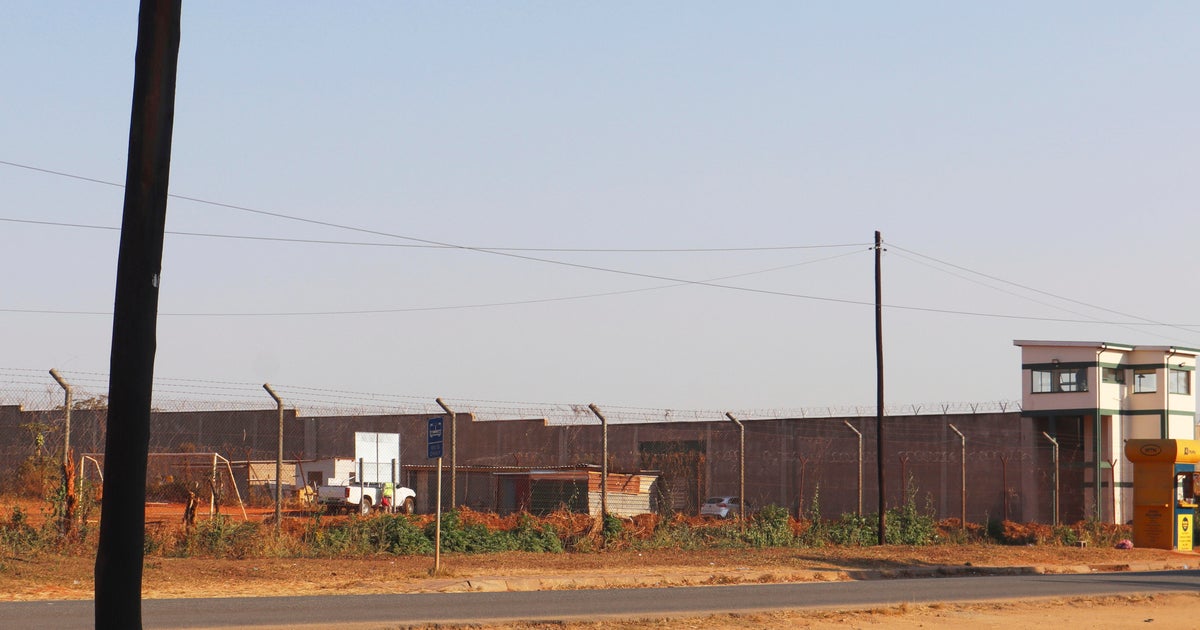Cape Town, South Africa — A Cuban deported by the United States to the African nation of Eswatini is on hunger strike in a maximum-security prison after being detained there for more than three months without charge or access to legal counsel under the Trump administration’s third-country program, his U.S.-based lawyer said Wednesday.
Roberto Mosquera del Peral was one of five men sent to the small southern African kingdom in mid-July as part of the US deportation program to Africa. He has been criticized by human rights groups and lawyers, who say deportees are denied due process and exposed to rights abuses.
Mosquera’s lawyer, Alma David, said in a statement to The Associated Press that he had been on a hunger strike for a week and that there were serious concerns about his health.
“My client is arbitrarily detained and now his life is at stake,” David said. “I urge Eswatini Correctional Services to provide Mr. Mosquera’s family and me with an immediate update on his condition and ensure that he receives appropriate medical care. I demand that Mr. Mosquera be allowed to meet with his lawyer in Eswatini.”
The Eswatini government said Mosquera was “fasting and praying because he missed his family” and described it as “religious practices” he would not interfere with, a characterization disputed by David. She said: “It is not a religious practice. It is an act of desperation and protest.”
Mosquera was among a group of five men from Cuba, Jamaica, Laos, Vietnam and Yemen deported to Eswatini, an absolute monarchy ruled by a king whom several human rights groups, and the British governmentaccused of taking drastic measures against human rights. The Jamaican was repatriated to his home country last month, but the others have remained in prison for more than three months, while an Eswatini-based lawyer has launched a case against the government demanding they be given access to legal aid.
Civic groups in Eswatini have also taken authorities to court to challenge the legality of holding foreign nationals in prison without charge. Eswatini said the men would be repatriated but could remain there for up to a year.
US authorities have said that They want to deport Kilmar Abrego García to Eswatini under the same program.
Kevin Richardson/The Baltimore Sun/Tribune News Service via Getty Images
Eswatini is at least the fourth possible destination the Trump administration has floated for Abrego García, a native of El Salvador who was mistakenly deported in March, held in a notorious Salvadoran prison and then returned to the United States in June, only to be detained again and face federal smuggling charges.
The men sent to Eswatini were already convicted of serious criminal offenses including murder and rape, and were in the United States illegally, the US Department of Homeland Security said.
He said Mosquera was convicted of murder and other charges. His lawyer disputed this and said Thursday that he was convicted of attempted murder and other charges. His complete criminal history was not immediately available.
Lawyers for the men told the AP that they had all completed their criminal sentences in the United States and are now illegally detained in Eswatini.
The U.S. Department of Homeland Security has portrayed the third-country deportation program as a means to remove “illegal aliens” from U.S. soil as part of President Trump’s immigration crackdown, saying they have the option of self-deportation or being sent to a country like Eswatini.
The Trump administration has sent deportees to at least three other African nations (South Sudan, Rwanda and Ghana) since July under largely secret agreements. It also has an agreement with Uganda, although no deportations have been announced there.
New York-based Human Rights Watch said it has seen documents showing the United States is paying African nations millions of dollars to accept deportees. He said the United States agreed to pay Eswatini $5.1 million to receive up to 160 deportees and Rwanda $7.5 million to receive up to 250 deportees.
AP/File
Another 10 deportees were sent to Eswatini this month and are believed to be held in the same prison at the Matsapha Correctional Complex on the outskirts of the administrative capital, Mbabane. Lawyers said those men are from Vietnam, Cambodia, the Philippines, Cuba, Chad, Ethiopia and Congo.
Lawyers say the four men who arrived in Eswatini on a deportation flight in July were not allowed to meet with an Eswatini lawyer representing them, and prison guards monitor phone calls to their lawyers in the United States. They have expressed concern that they know little about the conditions under which their clients are being held.
“I demand that Mr. Mosquera be allowed to meet with his lawyer in Eswatini,” David said in his statement. “The fact that my client was forced to take such drastic measures highlights that he and the other 13 men must be released from prison. The US and Eswatini governments must take responsibility for the real human consequences of their agreement.”




